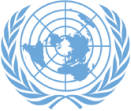Thursday, 07 October 2021
Thank you, Madam. Chair,
- I have the honor to deliver this statement on behalf of the Member States of the Association of Southeast Asian Nations (ASEAN).
- ASEAN aligns itself with the statement made by the distinguished representative of Guinea on behalf of the Group of 77 and China.
Madam Chair,
- This is another year in which we are confronted with an unprecedented crisis that affects countries to various degrees, particularly the group of countries in special situations, which are the most vulnerable as the hardest hit. With an already narrow and weak economic structure, fragile health systems with limited coverage of social protection systems, and limited financial and other resources, the LDCs are most likely to suffer the severe consequences of the projected global economic slowdown. Similarly, as a result of global lockdown measures, as well as a predicted reduction in world output, LLDCs face even greater problems, given their lack of territorial access to the sea, remoteness from international markets, and dependency on transit nations.
- Despite progress made on many priorities of the Istanbul Programme of Action (IPoA) and Vienna Programme of Action (VPoA) implementations, the COVID-19 pandemic has threatened to reverse our decade-long progress and has exacerbated the existing vulnerability and multiple challenges faced prior to the ongoing pandemic, such as poverty and hunger, which are on the rise while debts are skyrocketing.
- In this regard, increased international support and assistance are required for LDCs and LLDCs to take necessary and immediate actions, as well as mid-term recovery and long-term strategic measures, to mitigate the devastating socio-economic impacts of the Covid-19, with the goal of safeguarding their hard-earned development progress over the years and accelerating the IPoA and VPoA implementations in this decade of action and delivery for sustainable development so that they are not left further behind.
Madam Chair,
- ASEAN, for its part, has been implementing the ASEAN Comprehensive Recovery Framework, which aims to address the social and economic ramifications of the pandemic, such as disrupted production and supply chains, demand shocks, decreased trade and investment, financial vulnerabilities, high unemployment, growing inequality, and access to fewer resources and opportunities for vulnerable groups. Furthermore, in order to address public health emergencies, ASEAN has established the COVID-19 ASEAN Response Fund, which has received significant contributions from ASEAN’s external partners, as well as the ASEAN Regional Reserve of Medical Supplies for Public Health Emergencies.
- ASEAN continues to highlight the importance of narrowing regional development gap as well as the potential benefits of deeper regional economic integration through a commitment to build a highly integrated, cohesive, innovative, and resilient ASEAN Economic Community to facilitate the seamless movement of goods, services, investment, capital, and skilled labor. Furthermore, ASEAN is committed to implementing the Master Plan on ASEAN Connectivity and the Work Plan III of the Initiative for ASEAN Integration (IAI) in order to promote regional connectivity and narrow the development gap between ASEAN member states. ASEAN also welcomes the Regional Comprehensive Economic Partnership (RCEP) Agreement which will contribute to overall post-pandemic economic recovery, expansion of regional trade and investment, job creation, and inclusive global economic growth and development.
- Furthermore, through the ASEAN Economic Community Vision 2025, ASEAN aims to expand a more integrated and competitive ASEAN economy capable of sustaining high economic growth and resilience in the face of global economic shocks and volatility.
Madam Chair,
- As LDCs are in the final stage of IPoA implementation and prepare for the Fifth United Nations Conference of the LDCs, it is critical to recognize that there are unfinished tasks that require enhanced cooperation and support from the international community, particularly in the areas of productive capacity building, structural economic transformation, and reducing poverty.
- Most importantly, both LDCs and LLDCs remain vulnerable to external shocks and climate-related phenomena such as hurricanes, cyclones, flooding, drought, and landslides, which have caused terrible loss and damage to lives, livelihoods, and infrastructure. In this regard, ASEAN has made efforts to address the issue of climate change and disaster risk management recognizing the critical role of the United Nations Development System in mobilizing necessary supports for national governments to sustainably recover and build forward better in the aftermath of Covid-19. This unprecedented global health crisis poses a major test for the repositioned UNDS in the field and the efficient operation of the revitalized RC system, particularly in LDCs and LLDCs with sufficient support allocated for development work.
Madam Chair,
- Let me conclude by reaffirming ASEAN’s commitment to cooperating with the international community to promote sustainable development through multilateral cooperation to overcome this challenging time and build back better.
I thank you, Madam Chairman

